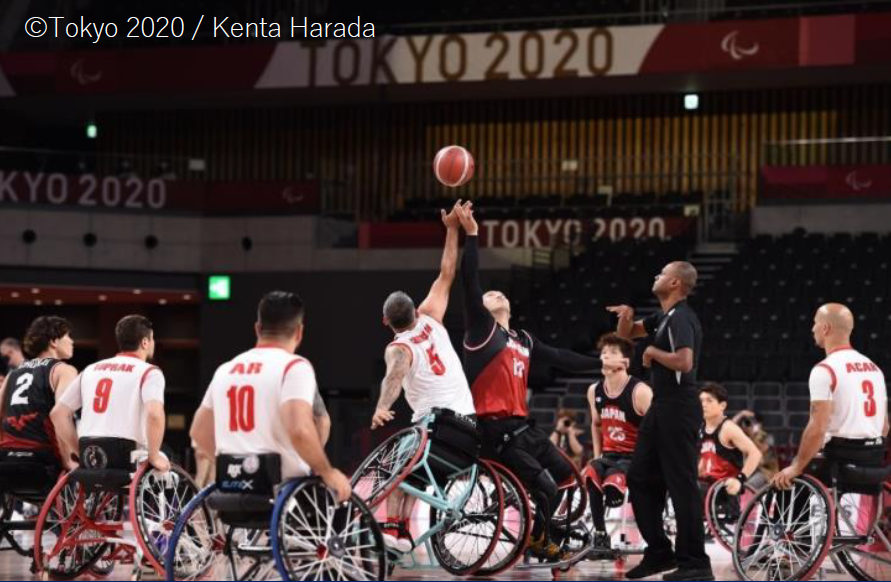The Tokyo 2020 Games were held under unprecedented conditions of a one-year postponement due to the pandemic. With the support of many people, the Games were viewed by 3 billion people around the world, with a cumulative total of 28 billion watching the sporting events.
The Games have not only enhanced hard infrastructures, such as the development of sports facilities and barrier-free access, but also given birth to many legacies within communities, such as enhanced enthusiasm for participating in sports, the growing interest in parasports, and the volunteer activities that supported the Games.

This January, the Tokyo Metropolitan Government published “TOKYO Sports Legacy Vision” to present how the accomplishments of the Tokyo 2020 Games will be leveraged in the promotion and establishment of sports in the city.
- Strategic utilisation of metropolitan sports facilities
Tokyo will utilise the sports facilities which were enhanced through the Games to provide maximum value for the citizens of Tokyo by:
- Maximising the potential through the network of 18 metropolitan sports facilities. Each of the 18 facilities will be promoted by taking advantage of its own characteristics and will be used to meet various needs, from holding large-scale competitions to venues where Tokyo residents can enjoy daily sports, and others to become the base of parasports.
- Further utilising the facilities as a base for sports promotion such as the hub for archery and water sports. In addition to providing new experiences to the citizens through entertainment, unique venues, and new technology, Tokyo will also promote collaboration with nearby facilities and the local communities to respond to diverse needs and to improve the attractiveness of the region.
- Attracting and hosting international sports events
Tokyo will attract diverse international sports events to Tokyo, energising the city through the dynamism of sports by:
- Meeting the needs of competitions of various sizes and for a diversity of events through the strategic use of metropolitan sports facilities. Tokyo will promote the use of facilities by providing information on each facilities’ specification and cutting-edge equipment along with the actual format of practical uses.
- Supporting the national sports federations to attract and host international competitions, including expansion of support for para-sports.
- Expanding opportunities for sports practice to all parts of Tokyo
Sports participation rate among Tokyo residents has significantly risen in 2021: 39.2% (2007), 68.9% (2021). Tokyo will use this opportunity to link the increased interest in sports to a new culture of ‘participating, watching and supporting’ sports by:
- Expanding the attractiveness of sports, centring on experiencing the urban sports that attracted much attention during the games, promoting sports events and campaigns such as sports months.
- Facilitating collaboration with companies and communities, through the engagement of enterprises and support for the efforts of local municipalities.
- Creating new points of contact with sports: promotional events in business districts, sports events applying the digital transformation, and organizing cycling events/competitions etc., in the convivial atmosphere of local communities.
- Promoting Parasports
Tokyo will encourage initiatives where everybody plays and watches parasports, and interacts, regardless of an impairment, with a view to contributing to an inclusive society by:
- Promoting more events of interaction through boccia and other sports to popularise Para sports and to nurture supporters.
- Providing opportunities for people with an impairment who have newly cultivated interests in sports through the Tokyo 2020 Paralympic Games to try parasports in their community, and facilitating participation in sports from the perspectives of health and joy.
- Securing opportunities against sports for ‘everyone, anywhere, always’ through such efforts as communicating information on barrier-free facilities and encouraging collaboration between sports, medical and education in the community.
- Tokyo athletes’ engagement and support
A number of athletes discovered, trained and supported by the Tokyo Metropolitan Government participated in the Games, including a number of medallists. Tokyo will create a cycle where athletes can actively engage in the community based on their experiences/careers, and contribute to broadening the base of competitive sports in the community by:
- Discovering and training young athletes for the next generation to produce top-level athletes from Tokyo.
- Supporting athletes and para-athlete supporting staff in Tokyo to compete in national/international events.
- Establishing a culture of volunteerism
Enthusiasm for volunteering grew significantly through the Tokyo Games. The experiences and wealth of human resources fostered will be passed on to the future, contributing to the firm establishment of a volunteer culture and realisation of a society where people support each other by:
- Providing a variety of information and fields for volunteer activities from several networks such as “TOKYO Volunteer Legacy Network”, “TOKYO Para Spo & Support” to connect those who are willing to support.
- Fostering mindsets through school activities.
- Creating opportunities to share experience and know-how from the Games volunteers through lectures, websites etc. to keep the experience alive.
- Message to the future
The Games conveyed important messages including the wonder of sports, recovery from the earthquake, sustainability, and respect for diversity. These efforts will be passed on to future generations in the form of memories and records by:
- Providing opportunities in the community, at school or at sporting events to touch sports equipment used by athletes for the promotion of sports.
- Carrying on the spirit of the Games with the use of commemorative Games items, through exhibitions and in educational settings.
Tokyo will also launch legacy events such as the 1st Anniversary Tokyo 2020 event which will be held from July to October 2022, and the Tokyo Legacy Half Marathon which will be an annual event held every October.
The full report in English can be seen via the following link:
https://www.2020games.metro.tokyo.lg.jp/docs/TOKYO_Sports_Legacy_Vision_Full.pdf

